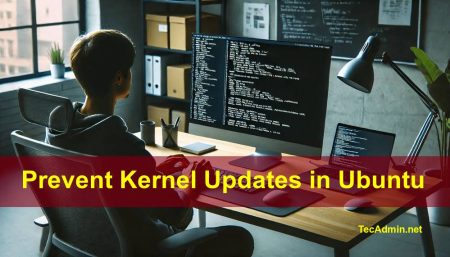Crontab, a powerful utility in Unix and Unix-like operating systems, is used to schedule commands to run periodically at fixed times, dates, or intervals. This powerful tool, when combined with environment variables, can offer an even more robust solution for automating and managing tasks. But what are environment variables, and how can you use them with Crontab? Let’s explore this in depth.
Understanding Environment Variables
Environment variables in Linux are dynamic-named values that are stored within the system and used by applications. These variables, which contain data used by one or more applications, can influence the behavior of your processes.
Environment variables are essential in scripting and programming, as they help you avoid hard-coding values that might change. For example, instead of hardcoding a file path, you can define it as an environment variable, allowing it to change without altering the program’s source code.
Understanding Crontab
The term ‘crontab’ is an abbreviation for ‘cron table’, where ‘cron’ is the name of the job scheduler in Unix-like operating systems. Crontab files are simple text files that contain a list of commands meant to be run at specified times. They are edited using the crontab command.
The syntax for a cron job is:
1 2 3 4 5 6 7 8 | * * * * * command to be executed - - - - - | | | | | | | | | +----- day of the week (0 - 6) (Sunday=0) | | | +------- month (1 - 12) | | +--------- day of the month (1 - 31) | +----------- hour (0 - 23) +------------- min (0 - 59) |
Setting Environment Variables for Crontab Jobs
While you can set environment variables in your shell, these variables won’t be accessible by the Crontab jobs, as each job is run in a separate shell that does not carry over the shell environment. So how do you pass environment variables to the Crontab jobs?
You can set environment variables directly in the Crontab file. Let’s say you want to set an environment variable named `MY_VAR` to Hello, Cron. Here’s how you’d do it:
- Open your Crontab file with the `crontab -e` command.
- At the top of the file, define your environment variable as follows:1MY_VAR="Hello, Cron"
- Now, you can use `MY_VAR` in your cron jobs. For example, to write MY_VAR’s value into a log file every minute, you could set a cron job like this:1* * * * * echo $MY_VAR >> /tmp/my_log.log
Special Cases with PATH
A common issue when running cron jobs arises from the fact that the PATH variable in a cron job might not be the same as the `PATH` in your shell. This means that commands which work fine in your shell might fail in a cron job.
To address this, you can set the `PATH` variable at the top of your Crontab file to include all directories that contain the executables needed by your cron jobs:
1 | PATH=/usr/local/bin:/usr/bin:/bin |
You might need to adjust this line depending on the specific locations of your executables.
Conclusion
Crontab is an incredibly useful tool for managing and scheduling tasks in Unix-based systems. When combined with the flexible use of environment variables, it allows for a versatile and dynamic approach to handling automated tasks. This guide aimed to provide a practical approach to integrating these two concepts, and I hope it aids you in your Unix journey. Remember, the key to mastering these concepts, as with any tool, is consistent practice and application.

